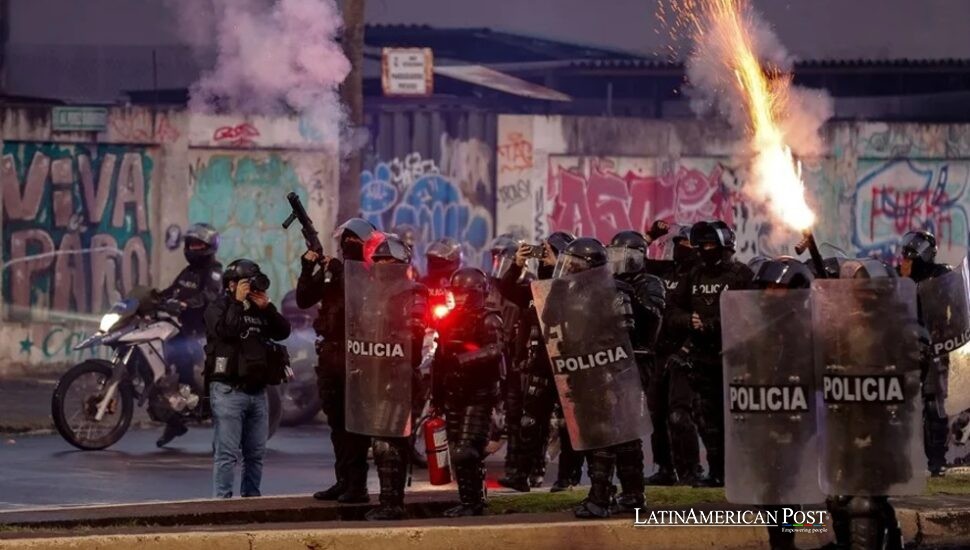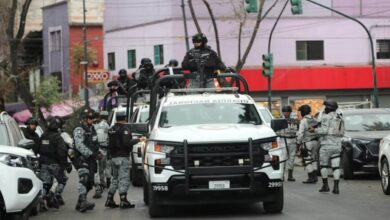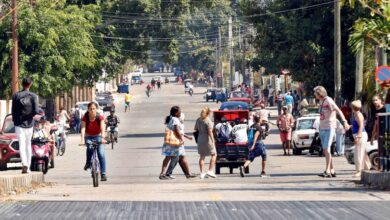Ecuador’s Boiling Point: Diesel, Dissent, and a Fight for the Nation’s Soul

Three weeks of bus strikes and farm roadblocks have pushed Ecuador to the edge. After President Daniel Noboa scrapped the diesel subsidy, one protester is dead, thousands of troops patrol the streets, his convoy has been stoned—and dialogue remains a ghost.
The Subsidy Red Line
Fuel subsidies may sound like technocratic jargon, but in Ecuador they are the nation’s pulse, a living map of who gets to move, eat, and work. When the government yanked the diesel subsidy—raising prices from $1.80 to $2.80 per gallon—it didn’t just touch a line item on a spreadsheet; it touched the nerves of a fragile society.
Diesel is the bloodstream of the countryside. It powers tractors, buses, fishing boats, and the pickup trucks that connect villages to markets. When that price jumps overnight, so does everything else—food, fertilizer, transport, survival itself.
Noboa insists the reform is necessary to restore fiscal sanity. The subsidy, he argues, was a “distortion” that cost billions while rewarding smugglers and the wealthy. He paired the cut with a VAT hike to 15% and trimmed the public payroll, promising to redirect savings into social programs. But austerity without trust is a bad bargain.
In Ecuador, timing speaks louder than policy. Announcing cuts before benefits is like pulling the roof off before building the shelter. For a population battered by inflation, crime, and drought, the promise of future social investment sounds abstract next to the sting of a higher fuel bill.
The government’s one-time handouts to soften the blow were dismissed as bandaids on a deep wound. The Indigenous movement, which has survived broken promises before, read the reform not as modernization but as déjà vu. They remember 2019 and 2022, when similar fuel protests left blood on the asphalt. In Ecuador, diesel is never just diesel—it’s dignity.
Two Implacable Narratives
Ecuador now lives inside two irreconcilable stories, staring at each other like reflections that refuse to blink.
From Noboa’s perspective, the state is defending order against criminal tactics: roadblocks that choke commerce, mobs hurling rocks, a presidential convoy pelted in a rural town. The government labeled it an “assassination attempt.” In this telling, the president is protecting democracy from chaos.
From CONAIE’s perspective, the script is reversed. This isn’t rebellion—it’s resistance. A centuries-old struggle for a decent life met again with soldiers, curfews, and tear gas. Images of troops beating a man who tried to rescue a fallen protester ricocheted through social media, galvanizing outrage far beyond the Indigenous base. “They call us terrorists,” a marcher said, “but we are the ones defending the right to live.”
Each side has a piece of the truth—and a fistful of risk. The government fears a repeat of the uprisings that nearly toppled previous presidents. The protesters see a familiar pattern: dialogue delayed until dissent explodes.
The geography tells its own story. The fiercest unrest burns in Imbabura, in the north—ironically, one of Noboa’s strongholds in April’s election. When your own supporters block the roads, you’re not facing a discipline problem. You’re facing a consent problem.
Security First or Stability Last?
Noboa rose to power on one promise: restore security in a country terrorized by drug cartels and prison massacres. But his current strategy risks confusing force with stability. Deploying 5,000 troops into Quito may deter vandalism; it won’t convince farmers that they can survive a 40% spike in fuel costs.
When every disruption is branded a crime, you erase the line between a unionist and a gangster. That collapse might be politically convenient, but it corrodes legitimacy faster than it restores order.
Smart reform would recognize that the subsidy, though costly, functioned as a rough social safety net in places where targeted programs never reached. If the government insists—rightly—that such a blunt instrument must go, it must install sharper tools first.
That means a diesel credit for small producers and transport cooperatives, distributed automatically through registries, not favors. It means publishing savings and showing citizens exactly where those funds are going—clinics, roads, school meals—with a legally binding schedule. And it means appointing an independent panel to track price pass-throughs and market abuses so no one can claim ignorance or manipulation.
Reformers fear that concessions signal weakness. In truth, they buy time. Lowering the temperature with credible relief isn’t surrender—it’s strategy. Stability is a form of security, too, and it can’t be imposed at gunpoint.
A Way Out of the Cul-de-Sac
Ecuador needs grown-ups in the room before it burns through another generation of leadership. A neutral table—perhaps mediated by the Catholic Church, universities, and civic groups—could host a time-bound negotiation that neither side can spin as defeat.
The agenda is obvious. The government must launch an independent investigation into the protester’s death, with transparent timelines and accountability. It must also set rules of engagement that protect peaceful assembly while isolating vandalism, and design a temporary diesel-stabilization mechanism for essential sectors until longer-term reforms kick in.
For their part, CONAIE and allied unions should keep blockades away from hospitals, fuel depots, and emergency routes, and refrain from ambushing presidential convoys. They can demand dialogue without crippling the country.
Both sides must link reform to real, dated investments in rural infrastructure, irrigation, and water systems. Mining concessions, another fuse in this powder keg, should be paused until transparent consultations take place.
None of these steps will satisfy purists. But together they could buy Ecuador something priceless—time to think.
Noboa, just 37, is still writing his political biography. He can choose between ruling by decree or governing by persuasion. The first earns obedience; the second earns memory. Strength is not the refusal to pivot—it’s the courage to do so publicly.
The Indigenous leadership, hardened by decades of betrayal, must remember that winning an argument is not the same as winning a future. Dialogue is not defeat; it’s a bridge.
Ecuador has already endured cartel terror, economic contraction, and the pandemic’s wreckage. It cannot afford to add a constitutional implosion. The diesel pump is not the battlefield—the social contract is.
Also Read: Brazil’s Sleeping Giant: Serra Pelada Stirs Again as Gold Fever Returns
This could yet become a success story: a small country proving that subsidy reform can coexist with fairness, that security can live with empathy. Or it could be another cautionary tale of stubbornness mistaken for strength. The next move, by both government and movement, will decide which story Ecuador tells the world.




